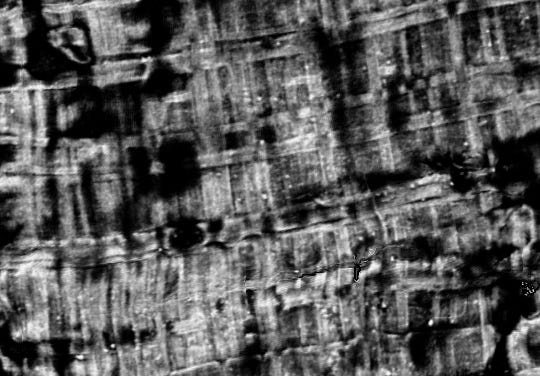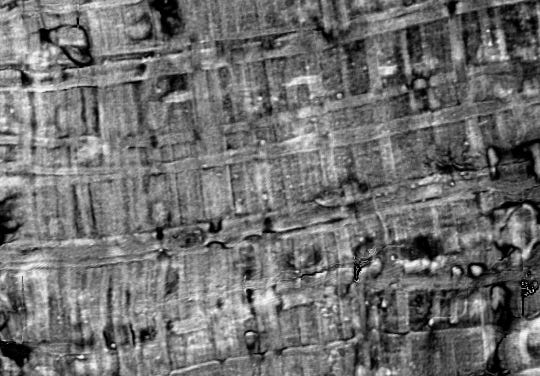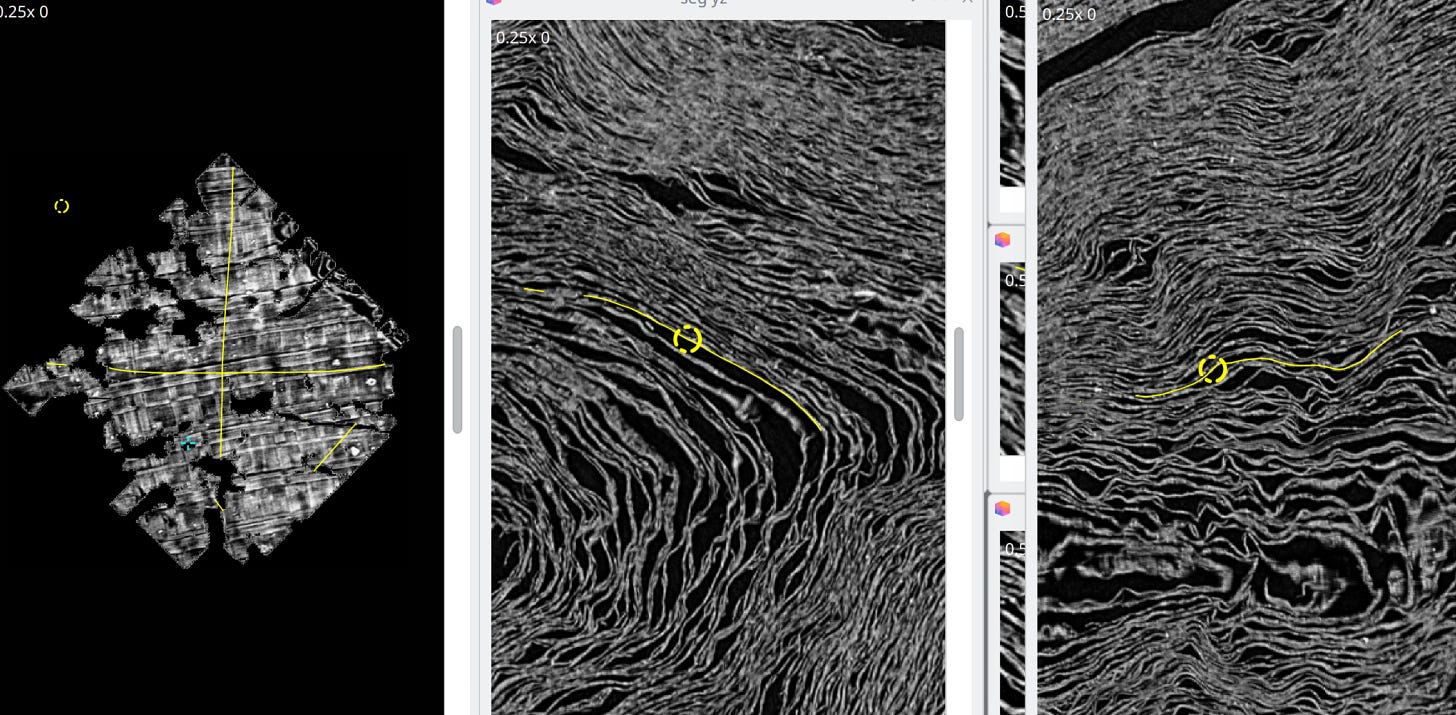New tools to use with new scroll
$18,500 in community contributions
Yesterday we released PHerc. 172 (Scroll 5), an exciting new scroll dataset that is already producing text from the ancient world. In case you missed it, we recommend starting there.
Today we’re announcing $18,500 in Progress Prizes for open source contributions made in October. These tools will help us achieve our goal of reading intact Herculaneum scrolls. In particular, you may want to use them to explore the new PHerc. 172 dataset!
5 x $2,500 (Sestertius)
Sean Johnson / @bruniss shared multiple trained models, along with their volumetric predictions on the 2023 Grand Prize region in Scroll 1. The models perform different segmentation tasks, such as following papyrus surfaces or individual fibers. These can be used as inputs for downstream steps: below, some fiber predictions are used for a tracing program by Hendrik Schilling / @waldkauz:
Speaking of Hendrik Schilling / @waldkauz, he has contributed an early segmentation approach that optimizes a mesh surface based on a number of different possible inputs or constraints. The optimization can trace a surface directly from the scan data, or can use processed inputs such as the above fiber model outputs.
Hendrik also developed a method for refining existing segments, capable of modifying an OBJ mesh file to more closely follow the papyrus surface. The approach uses alpha composition to generate fine-grained depth corrections across the segment surface, and appears to significantly improve the visual results following texturing.
Forrest McDonald / @verditelabs developed volcano, a simple C library for interacting with Vesuvius Challenge data. It contains features such as downloading and caching data from the Challenge server, reading and writing common file formats like .tiff, .obj, .ply, .nrrd, or .vcano, preprocessing data chunks, generating a mesh from a chunk via marching cubes, and more. volcano is designed to be integrated into vesuvius-c, and largely has been by now!
Johannes Rudolph / @jrudolph added support to vesuvius-gui for layering Zarr-based annotation volumes (such as those from Sean above) over the scan image data, enabling quick inspections of new community resources. Johannes also collaborated with the Vesuvius Challenge team to inspect the Zarr volumes on the data server, and created some recommendations for small and efficient file sizes.
6 x $1,000 (Papyrus)
Jorge García-Carrasco / @jgcarrasco built on previous work, exploring the benefits of self-supervised pretraining for ink detection. Be sure to read the informative report!
Hendrik Schilling / @waldkauz has been quite busy! In addition to the above contributions, Hendrik has been architecting changes to Volume Cartographer that would support full-scroll interactive segmentation.


Improving segmentation precision using new controls and refinement algorithms. Left: before, right: after. William Stevens / @Will Stevens added a number of improvements to his segmentation toolkit this month. As usual, it’s well worth a look at his thorough documentation in this month’s report!
James Darby / @james darby created Umbilicus_Maker to label the scroll umbilici, which are the centers of the wrapped scrolls. Accurate coordinates of the umbilicus can help orient segmentation methods that are reasoning about their rotation with respect to the scroll center. James also used Umbilicus_Maker to label the umbilici of our scrolls, and provided those data files in the repository.
James also improved methods for converting volumetric instance segmentations to meshes, adding a new meshing algorithm that is more robust to tight curvature within the region of interest.


Tight curvature broke previous meshing approaches (left), but the new approach is more robust (right). Yao Hsiao / @Yao Hsiao and Dalufishe / @Dalufish are building a visualization canvas for scroll tools. The local-first canvas allows one to integrate various tools from the Vesuvius Challenge community ecosystem in the same visualization environment. We are excited to see exploratory visualizations of scroll data and pipelines!
November deadline
Don’t miss the upcoming deadline for the next round of progress prizes! Make sure to submit your work by the end of the month here: November submission form.
As a reminder, we favor and reward submissions that:
Are released or open sourced early
Actually get used by the community
Are well documented
It pays well to share your work in progress with the community and incorporate feedback!
In the time it has taken us to review the October submissions, many of them have since advanced, and have gained traction in the community. If you are an author of one of these projects, please consider submitting the updated version again for November.
Project updates
Some other updates, in case you missed them:
Our segmentation team is hiring!
The Vesuvius Challenge team moved some projects from various sources to a central monorepo. Check it out: github.com/ScrollPrize/villa
Happy Thanksgiving to those who celebrate! We’re grateful to work on this amazing project with you, and can’t wait to see what you do next.









